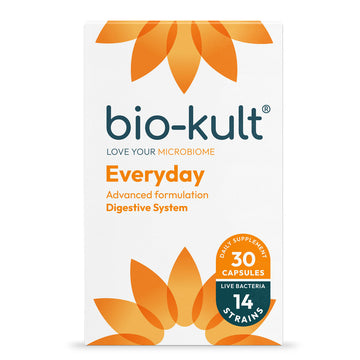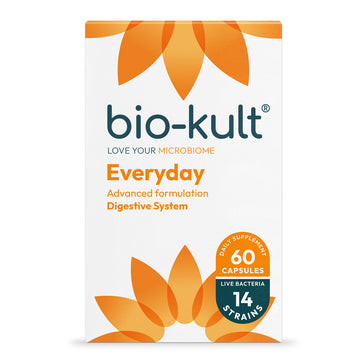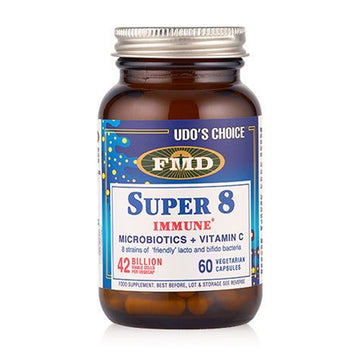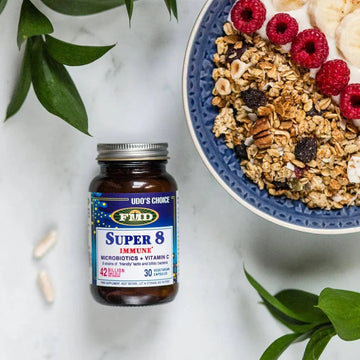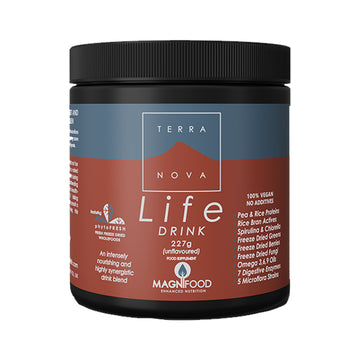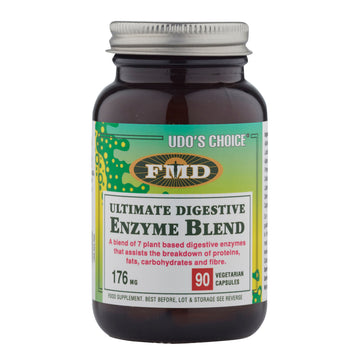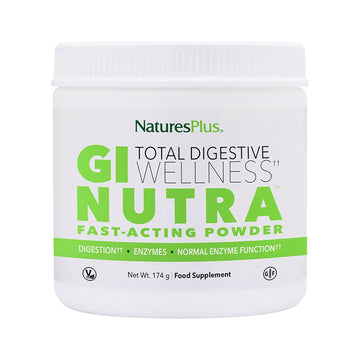There is a whole world hidden inside of us. One that may be a little unpleasant to think about but has untold impact on our general and long-term health. Today we're taking a look at bacteria and our digestive system.
Bacteria and Our Digestive System
So what bacteria lives in our digestive system? Our digestive tract (particularly our large bowel or colon) is colonised by approximately 100 trillion microorganisms. A delicate yet complex community of living organisms - including bacteria, yeasts, viruses and other small microbes inhabit this 30 foot long structure.
We are a long way from understanding the full impact that this miniature habitat has on our health. Nor do we know the ideal balance of the ‘good’ and ‘bad’ bacteria that live there - however, it has been shown that the bugs within the bowel are far from passive and have a significant impact on our health through their actions and interactions.
What we hope to discover is if it is possible, or indeed desirable, for us to change this balance through our diet or medication (e.g. probiotics) in order to have real positive impact on our health or disease. Some of the names of these bacteria have become familiar through advertising and food products... lactobacillus, bifidobacteruim, etc. While the types of bugs found in different peoples guts can vary considerably, the overall roles that they carry out tend to be same.
So what do they do?
Bacteria and Digestion
Bacteria are largely involved in digesting the food that we eat, especially carbohydrates such as fibres. As a result they contribute to the normal formation of faeces - an important healthy process that allows toxins and waste be removed from the body. When this system is impaired it may contribute to disease.
Helps with Acidity
The correct balance of bugs in the bowel is felt to have an impact on the pH, or acidity, inside the gut - it is thought this helps to stop harmful bugs from living in the bowel and is also important to allow the bowel cells work properly. Bad bugs such as E. Coli which may cause illness are also kept out of the bowel by good bugs literally competing with them for living space and food.
Production of Enzymes
Bacteria produce many by-products and chemicals - many of these are considered beneficial to human health, others may be toxic. Bacteria produce many useful enzymes - these are living chemicals that help other important reactions to happen such as: release of nutrients from grains (e.g. calcium), generation of vitamins, production of protective bowel mucus and formation of bile acids which help carry fat (such as cholesterol) around the body.
Gases
Gases are formed during digestion. For some this may be problematic contributing to symptoms found in irritable bowel disease (IBS) such as abdominal pain and bloating. Interaction between people’s immune systems and the bacteria in the bowel is strong and involves two way interaction and communication - the real impact and significance of this on normal body function and health is at this time poorly understood and more research is needed.
How is this secret world impacted by what we do, what we eat and how we live?
Labour & Breastfeeding
As already mentioned, each individual's gut bacteria is different. The balance also varies at different stages of our lives. It is not static. Research has shown that during the process of natural labour itself, and continued by breastfeeding, the foundation stones for (good) bacteria in the gut are laid down.
The initial make up is tailored towards the infants needs to digest milk easily (mostly lactobacillus) and also is felt to have a strong role promoting a healthy developing immune system. There is research to suggest that it is through this mechanism that breastfeeding is to some degree protective in reducing the likelihood of conditions such as eczema and asthma.
Weaning
The variety of bacteria increases significantly at the time of weaning onto solids and as a result the importance of offering a wide variety of foods over this time is felt to have a vital role in the composition of gut flora that develops. At other important milestones puberty, pregnancy, and in the elderly this pattern may change again.
Geography
Geography affects the bugs in your gut - children in rural Africa eating a diet high in fibre, fruit and vegetables have different bacteria to those eating a typical western diet high in animal protein, fat and processed sugar and grains. Research has measured changes in bowel bacteria (by testing faeces samples) in reaction to obesity, smoking and stress.
Is this impact important?
There are strong associations proven between diet and lifestyle - particularly obesity, lack of exercise and smoking with many chronic diseases and cancers including bowel cancer. We know that what we eat changes the balance of good and bad bacteria in our bowel (read more about eating your way to a healthy gut). In those with obesity or diets high in saturated fat, more ’bad’ bacteria tend to be present.
Fibre
If we are eating the ‘wrong’ foods does this affect the way the bacteria work in such a way as to cause disease? Can it increase inflammation? Can it interact in a harmful way with our immune system? This is not yet proven from research but is one theory that is being closely investigated. Should we try to change the bacteria in our bowels?
Dietary fibre is thought to be vitally important and has been found to be both preventative and act as a treatment of many digestive diseases. It also has a recognised role in prevention of Obesity, Diabetes and Heart disease.
Prebiotics
Prebiotics are dietary substances which promote the number or activity of good bacteria in the gut. Often taken as supplements but found naturally in cereals, fruit and vegetables (sources of dietary fibre), they have shown promise in animal studies to afford protection against a number of human chronic diseases including bowel cancer, inflammatory bowel disease and diabetes.
Probiotics
Probiotics similarly are gaining a powerful body of research and have entered common usage amongst gastroenterologists for treatment of conditions such as IBS and antibiotic related diahorrea. They can be used as supplements or in natural live form such as in yogurts.
What is the best balance of ‘good’ bacteria to have? Should we try to establish this early in childhood?
The truth is that no one yet knows the answer to this question. It is a bit of a ‘chicken and egg’ scenario. As usual, the adage ‘ you are what you eat’ holds true. We know the type of bugs in our gut are altered by our diet. But is the bacteria found in those with a ‘healthy’ diet the best balance to have? Do those with poor diets have the wrong combination of bacteria or is it the correct balance for their body trying to compensate the effects of this poor diet?
While the experts are still searching for the answers, it has at least been established that in disease there may be a significant role for ‘good bacteria’ to improve health.
Please note, this blog is for informational purposes only and should not replace medical advice.
It’s always best to consult your doctor before taking any new supplements, treatments or remedies if you are pregnant, breastfeeding or on medication.
Do you want to do more to support your digestive health? Then read our blog '8 Easy Ways to Improve Your Eating Habits'.
Author: Patrick Holford
Checked and updated: 20 August 2021



